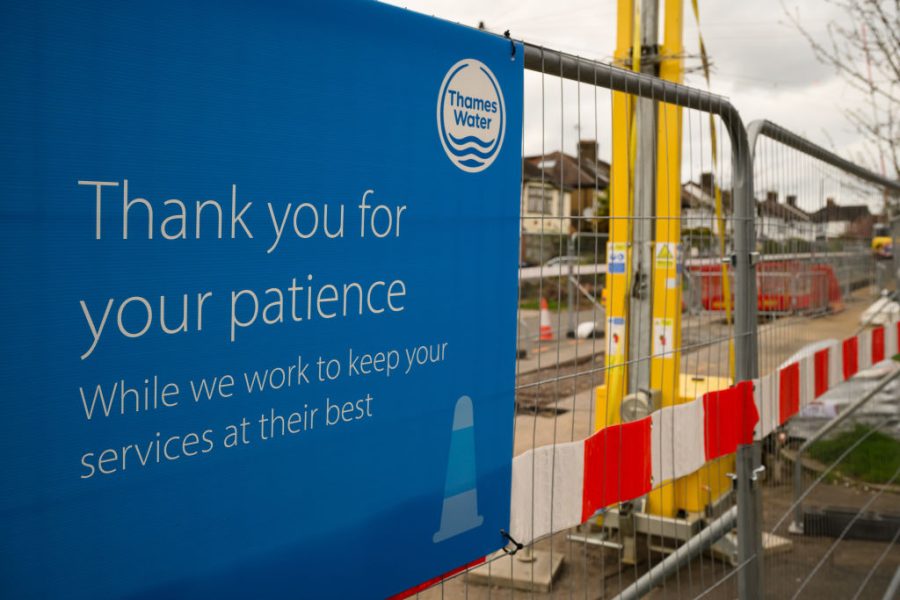Keir Starmer won the Labour leadership election in 2020 on the back of a promise to nationalise public utilities. In one of his most blatant flip flops, he later went back on that, committing instead only to nationalise the rail industry – and even then by degrees as current franchises reached the end of their lives. But could the Prime Minister find himself driven towards a much broader nationalisation after all, and at high political cost?
The question arises because of Thames Water, which has warned it could go bust next year if it is blocked from jacking up customers’ bills to help fill its own £15 billion financial black hole. The company wants to raise bills by 60 per cent over five years, but the regulator Ofwat only wants to allow an increase of 23 percent. This would appear to doom the company unless it can be refinanced, or possibly sold.
The solution to Thames Water’s problems being touted seems something of a political landmine
The trouble is, who would want to buy a water company in Britain given Labour’s current sabre-rattling at the industry? The Water (special measures) Bill unveiled two weeks ago promises large fines and even jail sentences for executives who persistently pollute watercourses with sewage – something which is very difficult to avoid unless billions is invested in separating the foul and storm drain systems. With Ofwat keen to limit rises to customers’ bills it is hard to see where this investment is going to come from.
Everything points, in other words, to Thames Water having to be nationalised at some point, quite possibly in the next 12 months. But this leaves the government with a very large headache: how to stump up the estimated £10 billion cost of nationalising the industry. The solution which is being touted would seem to be something of a political landmine: the government is reported this morning to be thinking of passing on that £10 billion cost to other water companies, who of course in turn will pass it on to their consumers.
People living in London have every right to be angry over the behaviour of Thames Water, which built up large debts while paying handsome dividends to its private equity owners. It failed to invest in new reservoirs and instead tried to ration demand through regular hosepipe bans.
But water customers in other parts of the country will have every reason to feel even angrier if they are forced to bail out Thames Water. Thames Water customers have been paying very close to the average bill for England, at £471 this financial year. Some are paying markedly more, especially those in the Anglian Water area (£529 this year) and Wessex Water area (£548). Why should these customers pay to bail out London’s water system? Moreover, why should companies which have been more financially responsible than Thames Water be forced to bail out that company? It is as if one supermarket had got itself into financial trouble by viciously undercutting its rivals – and then those rivals are forced to bail it out.
There is a respectable argument that the water industry should never have been privatised in the first place. It never delivered the benefits which privatisation was touted to deliver: it didn’t introduced competition, not for domestic customers anyway. It did not lead to a step change in investment – rather the existing infrastructure was sweated. And as we are now finding it did not transfer financial risk from taxpayer to private investors.
But that doesn’t mean that privatisation is easy to unwind. Even if it could be unwound – at considerable cost to the taxpayer – the government would find itself taking on the great problem facing the whole industry: how to avoid sewage discharges when billions are required to separate foul and storm drainage. Somehow, I don’t think that Starmer will be happy sending civil servants to jail for failing to avoid sewage discharges, still less his own environment secretary.








Comments